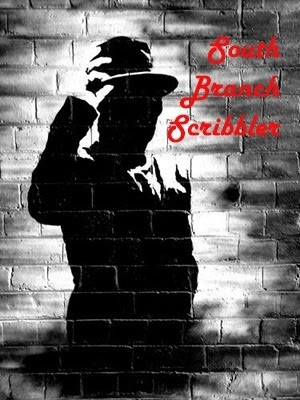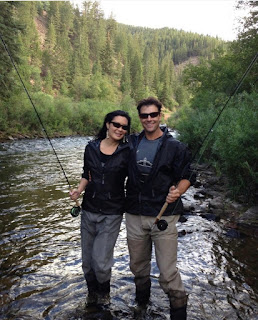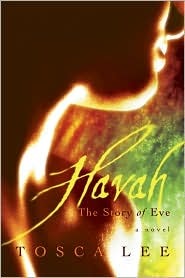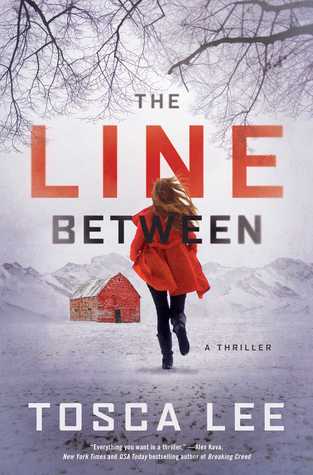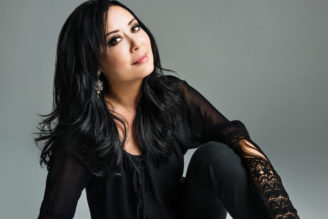The Scribbler is pleased to do a series of guest appearances in conjunction with Creative Edge Publicity of Saskatchewan, Canada. (See below for more of Creative Edge)
This month our featured guest is
Tosca Lee. When you visit her website, you are greeted by the following:
“ABSOLUTELY RIVETING! TOSCA LEE IS A
BORN STORYTELLER.” – J.D. Barker, internationally bestselling author of The
Fourth Monkey.
Author of eleven bestselling novels,
Tosca Lee has garnered an amazing number of awards and accolades for her
writing. Her first novels solidified her reputation for thorough research and
biblical interpretation. Moving on to adult thrillers, her supernatural
suspense novels again received many starred reviews and high acclaim.
“Reviewers praise her lyrical prose, emotive settings and historical detail. Her thrillers, which feature female leads, are consistently praised for their strong heroines and breakneck pacing.” – from Wikipedia.
The Scribbler is privileged to have Tosca as our guest. She has graciously agreed to a 4Q Interview and is sharing an excerpt from The Line Between.
Tosca Lee is the award-winning, New York Times bestselling author of eleven novels including A SINGLE LIGHT, THE LINE BETWEEN, THE PROGENY, THE LEGEND OF SHEBA, ISCARIOT, and the Books of Mortals series with New York Times bestseller Ted Dekker. Her work has been translated into seventeen languages and been optioned for TV and film. A notorious night-owl, she loves movies, playing football with her kids, and sending cheesy texts to her husband.
You can find Tosca on social media or hanging around the snack table. To learn more, please visit toscalee.com.
** Tosca has recently received news that The Line Between and A Single Light had both won International Book Awards—The Line Between in mystery/suspense and A Single Light in Science Fiction. The two books are also up (against one another!) for the Killer Nashville Silver Falchion award in Science Fiction.
Congratulations Tosca!
4Q: Let’s dive right into your latest work,
Tosca. I’m referring to A Single Light,
which is a follow up to your bestselling novel, The Line Between. The novels consider your heroine’s survival in a
post apocalyptical world after a worldwide pandemic. An interesting premise,
considering the trying times we are experiencing now. Tell us about the story.

TL: It’s definitely been a little surreal living through a pandemic this year after writing these two books, for sure!
In The Line Between an extinct disease has reemerged from the melting Alaskan permafrost to cause madness in its victims. There is no cure, it is always fatal, and now it’s spreading. For 22 year-old cult escapee Wynter Roth, it’s a terrible time to start over.As Wynter struggles in a world she’s been taught to regard as evil, she finds herself face-to-face with the apocalypse she’s feared all her life—until the night her sister shows up at her doorstep with a set of medical samples. That night, Wynter learns there’s something far more sinister at play and that these samples are key to understanding the disease.
As the power grid fails and the nation descends into chaos, Wynter must find a way to get the samples to a lab in Colorado. Uncertain who to trust, she takes up with former military man Chase Miller, who has his own reasons for wanting to get close to the samples in her possession, and to Wynter herself.
A Single Light starts up right where The Line Between ends. Wynter and Chase have taken refuge in an underground silo with 60 others to whether the pandemic and wait for the vaccine Wynter had a hand in creating. But when they reemerge into the world, nothing is as they expected.
4Q: I’m interested in your first novels, Demon and Havah, both offering accounts of human creation and the beginning of mankind as seen through the eyes of Lucian – the fallen angel in Demon and Eve - the first woman, from Havah. Where did the inspiration for these stories come from?
TL: Demon
was a story I wasn’t really expecting—it just sort of came along one day while
I was driving. I was part of an online gaming
community and was trying to come up with a fun new character. I considered
writing an angel, but then thought that was kind of boring. Then I found myself
wondering what it would be like to be angelic and fallen. Would I go around trying to tempt people to
do bad things? And why—just for kicks? That seemed too shallow for a truly
complex, spiritual creature. There had to be more to it. Suddenly, I didn’t
want to create a fallen angel role-playing character… I wanted to write the
story of such a being.
I wrote that story very swiftly, over
the course of about six weeks. But it took me many years to sell, even with the
help of an agent. In between, I found myself wanting to take a stab at biblical
fiction. I was very inspired by one of my favorite books, The Red Tent. I hadn’t ever seen a book written from Eve’s point of
view and thought that she has been vilified for so long, it’d be really
interesting to see what her life and motives might have been like. That’s how I
approach any maligned character—thinking that there’s more to the story.
4Q: Please share a childhood memory and/or
anecdote.
TL: I was always making things up as a kid,
telling stories, entertaining my little sister, mostly. One time, I convinced
her that her Raggedy Ann doll was possessed by Satan. When she wasn’t looking,
I got my dad’s dental floss and rigged it up in the crook of her door so that
when she closed it and was alone and I pulled on the strings, it moved. This
blood-curdling scream came from her room and I remember thinking that was the
greatest gag ever. Except that I haven’t seen able to look at Raggedy Ann the
same since.
A few years ago, when I was visiting her in
Boston, where she’s a physician and med school professor, I went down to the
guest room to go to bed. As I pulled back the covers, there was a Raggedy Ann
doll tucked beneath the coverlet. I practically heard the Psycho sound track in
my head at the sight of that ropey red hair. :D
4Q: The three novels in the Book of Mortals series was co—written with another bestselling
author – Ted Dekker. When you write with another author, is there a fear of
losing your own voice? Please tell us about this experience.
TL: That’s
a really interesting question. And for me the answer is that it was never about
retaining or losing my voice, but finding a way to blend it with another author
to create a new one. Before our collaboration, I had just come off of writing Havah, which has a very lyrical and
literary sense to it. Ted was writing serial killer thrillers. So we were
really on opposite ends of the spectrum, voice-wise. We worked very hard and
went over our prose again and again to really get a good blend until the voice
was natural, appropriate to the genre, and hopefully transparent enough to the
reader that they could focus not so much on the language but the story itself.
4Q: Favorite authors? Novels?
TL: One of my all-time favorites is The Mists of Avalon by Marion Zimmer
Bradley. It’s the novel that made me want to try my hand at writing; it gave me
so much enjoyment and wonder every time I read it, I wondered if I could do the
same for someone else.
These days I’m blessed to count so many gifted
authors as friends, so it’s really hard to answer this question. But I can tell
you what I’m reading and loving at the moment, and that is Opium and Absinthe by the brilliant Lydia Kang and A Good Family by amazing debut author
A.H. Kim. I highly recommend them both.
4Q: Several of your novels are in development for
TV and film. This must be exciting! What can you tell us about them?
TL: Unfortunately, this pandemic has kind of
slowed everything in Hollywood down, so we’re a bit in stasis for the moment.
We do have a new production partner for The
Progeny series and we have an incredible showrunner for The Line Between that I’m really excited
about. Hopefully we’ll have more news to share soon.
4Q: What’s next for Tosca Lee, the author?
TL: I’m between contracts at the moment, but
wrapping up a quick rewrite on a co-authored WWII novel that we hope to find a
home for soon. And I’m thinking of finally getting the writing book I’ve had on
the back burner done, hopefully this year.
4Q: Anything else you’d like to tell us about?
TL: Some fun items: A Single Light releases in
paperback August 18. But right now through the end of the month it’s actually
on sale in eBook for $1.99. So is The Progeny. Also, The Legend of Sheba, my
novel about the Queen of Sheba, is up for grabs right now in a Goodreads
giveaway here until August 11: https://www.goodreads.com/giveaway/enter_choose_address/309709-the-legend-of-sheba-rise-of-a-queen.
An Excerpt from The Line Between.
(Copyright is held by the author. Used with
permission)
ALASKAN INTERIOR, JUNE
The farmer moved
into the woods looking for his pigs.
“Jilly! Jilly!” he called. He’d named the sow after his first wife, who’d grown
about as fat as the woolly Hungarian blonde, if not quite as hairy. But unlike
his ex-wife, Jilly usually came when called, which meant it must be time. The
sow was expecting her third litter, and for some reason beyond his
understanding, every pig in the sounder had to traipse off into the forest with
her to make the farrowing a community event.
He stepped over
fallen tree trunks and bent to duck several others. There wasn’t a single tree
in this patch that was plumb. “Drunken forest,” the climate change people
called it—a more subtle sign of melting permafrost than the sinkholes in town.
Aside from the new buckles in his road, he didn’t mind much; warm weather meant
more growing days for his new garden. Soon as the pigs got done rooting up this
patch, he planned to clear the fallen trees and plant some vegetables. Just
enough to beat back the high cost of fresh produce a little, maybe even sell
some at the Tanana Valley farmers’ market. Who knew—maybe in a year or two he’d
look into growing some midnight sun cannabis.
“Jilly girl!” he called, nearly tripping over what he thought was
a root until he recognized it for what it was: a bone. He squatted down,
tugged, and came away with half a shoulder blade. Caribou, by the size of it.
Thing still had gristle on it, leathery and black except where a hunk had been
freshly torn away. God only knew how long that thing had been buried in the
mud.
He stood up and kicked around, unearthing what was left of the
carcass, which wasn’t much. One thing he’d learned, the Mafia legend held true:
a dead body wouldn’t stand a chance against pigs. Nor did living chickens that
wandered too close to the pen. He’d learned that the hard way.
He wandered deeper, hacking at the fallen trees with the shoulder
blade until he finally found Jilly—and Romeo and Petunia and Walter—nestled in the pine needles with a fresh litter of
blond-haired piglets. Ten in all. Well above the European average and two more
than her last litter.
He patted Walter when he pushed his snout into the farmer’s hand
and let him have the shoulder blade, already doing the math in his head.
It was going to be a good year.
TWO DAYS LATER, the farmer found Petunia milling around the yard with a bloody
stump for a tail. She ran when he tried to inspect the wound, and only Romeo
came when called. The farmer’s first thought was that someone—or something—had
terrorized the animals. A wolf, maybe, or even a bear.
After retrieving his shotgun from inside the house, he struck out
for the wood.
He found Walter sprawled near the base of a leaning tree, snout
bloody, corpse bloated. Just beyond him lay his prized sow Jilly, belly torn
open, her piglets savaged around her.
CHAPTER ONE
IOWA, SEPTEMBER
Conventional wisdom dictates that there’s an insurmountable divide—an
entire dimension of eternity and space—between Heaven and Hell. Lucifer managed
to make the trip in nine days, at least according to Paradise Lost. That equates to a distance of about 25,920 miles,
assuming standard rules of velocity.
But I can tell you it’s closer to a foot and a half. The distance
of a step.
Give or take an inch.
Magnus stands near the gatehouse, shirtsleeves rolled up, collar
unbuttoned beneath his brown vest. He nods to the Guardian in the booth and the
industrial gate begins its mechanical slide. There’s a small door to the side
of it just large enough to admit a single person, but I won’t be leaving by the
Narrow Gate. My departure must be a spectacle, a warning to those assembled
behind me.
I can feel their
eyes against my back like hot iron. The glares mottled by anger and fear.
Sadness, maybe, but above all gratitude that they are not me.
Two Guardians
stand at my sides ready to forcibly walk me out in case I balk or my
twenty-two-year-old legs give out beneath me. I glance at the one to my right
and swear he looks impatient. Hungry, maybe; it’s just before lunchtime. I’m
crossing into eternal damnation, and all he’s thinking about is an egg salad
sandwich—and not even a good one. It’s Wednesday, Sabbath by the solar
calendar. Rosella is managing the kitchen, and that pious sandwich is full of
chickpeas without a single real egg in it.
The gate comes to
a stop with an ominous clang. The road beyond is paved with gravel, a gray part
in a sea of native grass strewn with gold and purple flowers in stark contrast
to the carefully and beautifully manicured grounds behind me. A meadowlark
sings somewhere nearby as a combine rumbles in the distance.
I grip the plastic bag of my sparse belongings: a change of
underwear, my baby book stripped of its photos, a stone the color of sea glass.
Sweat drips down the inside of my blouse as I stare out at that feral scape. At
that barren drive through untouched prairie that leads to the road half a mile
away.
A car idles at the corner, waiting for me.
Don’t look. Don’t glance back.
That’s Pride talking, a voice so faint this last decade I wasn’t
aware it was still in there. Still, I turn. Not because I need a parting glance
at the compound I called home for the last fifteen years or even Jaclyn, my
sister. But because I need to see her.
My niece, Truly.
I scan the nearly five hundred Select assembled across the broad
drive until I find her small form near the front, her hand in Jaclyn’s, curls
wafting around her head in the breeze.
I’d planned to mouth the words I love you. To tug my right earlobe in
our secret sign so she’ll remember me long after she’s told she can never speak
my name again. To fight back tears at the sight of hers, to combat her
confusion with love.
Instead, my heart stops.
She’s glaring at me, her face pink, growing redder by the instant.
I open my mouth—to say what, I don’t
know—but before I can, she tears her hand from my sister’s and runs away,
disappearing into the assembly.
“Truly!” I gasp, and stagger a step after her. The Guardians grab
my arms.
“No. Wait—Truly!” I twist against
them, plastic bag swinging against my thigh. I can’t leave her like this. Not
like this. It wasn’t supposed to happen this way.
None of it was.
I shift my gaze to my sister, where she stands beside the six
Elders. Her cheeks are hollow, features chiseled far beyond her twenty-seven
years.
“What did you say to her?” I shout as I’m jerked back around and
hauled toward Magnus, who stands before the open gate, this side of that
invisible line.
“Wynter Roth,” Magnus says, loudly enough for those behind us to
hear. Which means he’s basically shouting right at me. Gone, the brown-and-gray
scruff that was on his chin yesterday. I can smell his aftershave from here.
“Please,” I whisper in the space between us, trying to snag his
gaze. But he stares past me as though I were a stranger.
“Because of your deliberate, prolonged disobedience . . .” His
words carry to those behind me even as the breeze whisks mine away.
“Just let me say good-bye!”
“. . . including the sins of idolatry, thievery, and the willful
desire to harm the eternal future of those most vulnerable among us . . .
because you will not hear the pleas of the brethren and refuse repentance, you
are hereby delivered to Satan for the destruction of your flesh.”
I hear the words as though from a distance. I’ve seen and heard
them spoken before—I just never thought they’d
be aimed at me. So this is it. There will be no good-byes. And I realize I hate
him.
Magnus lifts up his hands. “And so we renounce your fellowship and
cast you out of our holy number even as we pray for the restoration of your
salvation, which you forfeit this day. Now, as it is bound on Earth, so let it
be bound in Heaven.” He lowers his arms as the assembly echoes his words and
says, more quietly as he meets my eyes at last, “You have broken our hearts,
Wynter.”
He moves away before I can respond and the Guardians walk me to
the line as I glance back one last time.
But Truly is gone.
I face the gravel drive before me.
One step. That’s all it takes to span the distance of eternity. Welcome to
Hell.
Thank you, Tosca, for being our special guest
this week. Wishing you continued success with your writing.
Thank you!!
For all you wonderful readers that want to
discover more about this talented author and her writing, please follow these
links:
www.facebook.com/AuthorToscaLee
https://www.bookbub.com/authors/tosca-lee
https://www.amazon.com/Tosca-Lee/e/B001JPCC42%3Fref=dbs_a_mng_rwt_scns_share
